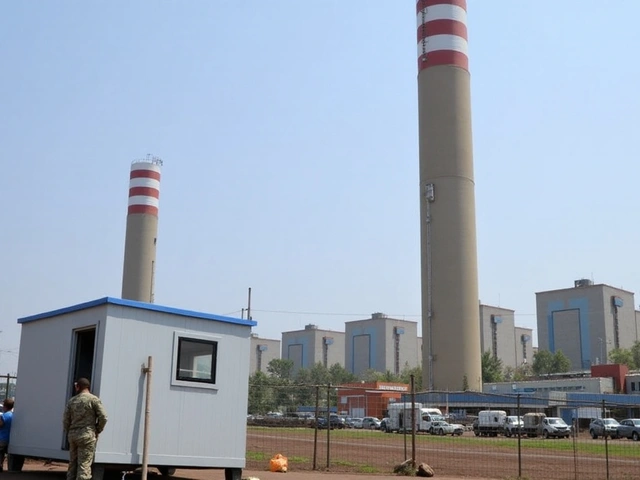
Memorial Day: Honoring Fallen Soldiers and Kicking Off Summer Travels
Memorial Day, originally marked on May 30, was officially designated as a federal holiday in 1971 to honor the brave soldiers who sacrificed their lives in service to America. Today, the holiday is observed on the last Monday in May, blending solemn remembrance with vibrant celebrations, retail promotions, and the unofficial commencement of summer.
This year’s Memorial Day is expected to be a bustling extended weekend for many Americans. While the primary focus remains on paying respects to the nation's heroes, the holiday also shoulders the cultural weight of various activities, including family gatherings, barbecues, and parades. However, it's important to know what services and amenities will be available so you can plan accordingly.
Government Services and Institutional Closures
If you're planning any activities that involve banks, government buildings, or other institutions, you'll need to make alternative arrangements. As Memorial Day is a federal holiday, all government buildings will remain closed. This includes post offices, departments of motor vehicles, and local government offices. Courts will also not be in session, and if you need essential services, make sure to arrange them for either the Friday before or the Tuesday after the holiday.
The U.S. stock markets, including both the New York Stock Exchange and NASDAQ, will not trade on Memorial Day. Therefore, those engaged in trading should prepare for this closure. Financial institutions, including all major banks, will also be taking a hiatus, so plan your banking needs in advance.

Impact on Postal and Delivery Services
Postal services will be significantly impacted, with no deliveries from the United States Postal Service (USPS). Most FedEx and UPS services will also be unavailable, though some of their essential services might continue depending on the locality and urgency. If you're expecting any packages or planning to send items, it's best to anticipate delays and schedule accordingly.
Retailers Open For Business
Interestingly, while many establishments take a day off, Memorial Day has grown into one of the most lucrative days for retail sales. Most major retailers, such as Walmart, Target, and Best Buy, will be open for business. These stores typically offer significant promotional sales, presenting a plethora of discounts that attract shoppers looking to score deals on appliances, electronics, home goods, and summer essentials. So, if retail therapy is on your agenda, this might be a golden opportunity.
Grocery stores and supermarkets, largely unaffected by the holiday, will also remain open, albeit with potentially adjusted hours. Chain stores and local markets understand the uptick in gatherings and barbecues, ensuring supplies for picnics and family cookouts are readily available.

Summer Travel Trends and Predictions
Memorial Day also marks the start of the summer travel season, making it one of the busiest travel weekends of the year. According to AAA, a staggering 43.8 million Americans are set to travel over this holiday period, reflecting a 4% increase from last year. This remarkable number underscores the enthusiasm for travel, despite the challenges posed by the pandemic in recent years.
Of the 43.8 million travelers, approximately 38.4 million will be hitting the road, a phenomenon largely attributed to the flexibility and convenience of car travel. The current statistics reflect the highest number of road travelers since AAA began tracking travel trends in 2000. Whether it's a full-scale vacation or a short road trip, the preference for personal vehicles remains a dominant trend.
Air travel is also experiencing robust growth as more individuals regain confidence in flying post-pandemic. An estimated 3.5 million Americans are anticipated to take to the skies. Despite lingering concerns about delays and cancellations, the surge in air travel indicates a broader return to pre-pandemic norms for the airline industry. Airports expect to manage this influx efficiently, but travelers should brace for crowded terminals and potentially longer wait times.
Public transportation options such as buses and trains will continue to serve passengers, though their schedules might see adjustments. Travelers relying on these modes should verify schedules in advance to avoid any disruptions.
Planning Your Memorial Day?
Whether you're traveling, shopping, or simply spending time with loved ones, having a comprehensive understanding of what's open and what's closed will help ensure a seamless Memorial Day experience. Prepare for the closures of essential services, weigh in on the retail opportunities, and anticipate travel conditions to make the most of this special day.
In the midst of these observations, let’s not forget the fundamental essence of Memorial Day: a time to honor and remember the brave souls who gave their all for the nation. While the festivities and activities add flavor to the weekend, paying homage to those who served ensures we appreciate the true significance of the holiday.






Memorial Day's mix of solemn remembrance and backyard barbecues always feels a bit surreal, but it's good to know which places stay open. If you're looking to swing by Target or Walmart for those last‑minute grill supplies, they're keeping their doors wide open. Just remember banks and the post office will be shut, so handle any cash or mailing needs before Friday. Also, the stock markets are on pause, so any trading plans should be put on hold. Safe travels if you're hitting the road!
Ah, the symphony of retail sirens and traffic horns on Memorial Day is nothing short of a nationwide choreography, a veritable ballet of consumerism.
While the federal institutions retreat into their sanctified archives, the private sector unleashes a barrage of promotional algorithms designed to maximize basket size.
Think of the dynamic pricing engines at Walmart and Best Buy as hyper‑optimizers, leveraging real‑time demand elasticity to thrust discounts into the marketplace.
Simultaneously, the logistics pipelines of UPS and FedEx recalibrate their route matrices, flagging priority shipments while throttling non‑essential parcels.
Travelers charting the interstate will encounter congestion heatmaps that spike along I‑95 and I‑75, a direct consequence of the 38.4 million‑strong vehicular exodus.
Airborne traffic, though dwarfed by road volumes, still registers a 3.5 million passenger uptick, prompting airlines to activate surge staffing protocols.
Airports, in turn, ramp up passenger flow analytics, deploying predictive queuing models to mitigate bottlenecks at security checkpoints.
Meanwhile, the Federal Reserve’s holiday cessation sends a quiet ripple through the interbank settlement systems, temporarily halting high‑frequency trade executions.
For the diligent planner, this interlude offers a prime opportunity to audit personal finances, reconcile accounts, and pre‑authorize transactions before the market’s temporal blackout.
And let’s not overlook the sociocultural substrate: families gathering under the amber glow of patio lights, honoring fallen heroes while simultaneously indulging in the visceral joy of consumption.
This duality underscores the American narrative of reverence intertwined with resilience, a paradox that fuels both patriotism and profit.
If you’re navigating the retail labyrinth, prioritize early morning slots to dodge the crowds that swell post‑noon, a tactical move derived from historic foot traffic analyses.
Conversely, road voyagers should calibrate departure times around the 10 AM to 2 PM window to avoid peak congestion, a recommendation borne from AAA’s real‑time telemetry feeds.
In essence, Memorial Day operates as a macro‑level experiment in coordinated human behavior, where institutional closures create vacuum spaces rapidly filled by market mechanisms.
So whether you’re bagging a new grill or simply paying respects at a local monument, remember that the invisible engines of commerce and logistics are humming louder than ever beneath the ceremonial fanfare.
Honoring the fallen should trump any retail frenzy.
Don't be fooled by the corporate hype!!! This holiday is being weaponized by big‑box oligarchs to distract us from the true cost of perpetual war!!! The government shutters out but the profiteers stay open, draining our wallets while they sell us false patriotism!!! Stay vigilant, question the agenda, and don't let them normalize this consumerist exploitation!!!
When we consider Memorial Day, it serves as a collective ritual that balances remembrance with the seasonal surge of mobility, prompting us to reflect on the temporality of both life and leisure. The closure of civic institutions underscores the societal pause in honoring sacrifice, while the open doors of retailers symbolize a forward‑looking optimism. This juxtaposition invites a deeper meditation on how we allocate public versus private spaces during moments of national significance. Moreover, the travel statistics reveal a yearning for connection, a desire to traverse physical distances that mirrors our internal quest for meaning. In navigating these dynamics, we might ask ourselves how to honor memory without succumbing wholly to consumerist currents.
Indeed, the observations articulated above resonate profoundly with the ceremonial gravity of Memorial Day. While commercial enterprises capitalize upon the occasion, it remains incumbent upon citizens to preserve the sanctity of remembrance. Accordingly, I would recommend a measured approach: allocate time for both reflective homage and prudent planning of any requisite errands or travel. By harmonizing these elements, one can both honor the fallen and partake in the seasonal activities with decorum.